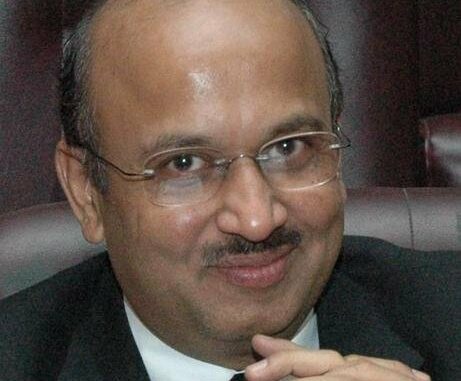
NEW DELHI (TIP): Noting that parliamentarians and legislators represent the sovereign will of the people, a Supreme Court-appointed amicus curiae has suggested that those convicted of an offence involving moral turpitude should be permanently disqualified from contesting elections. Senior counsel and amicus curiae Vijay Hansaria has suggested that limiting the period of disqualification to contest elections after conviction to six years is manifestly arbitrary and violates Article 14 of the Constitution. He has suggested permanent disqualification of such convicts instead of a six-year ban.
In his 19th report submitted to the top court, senior counsel and amicus curiae Vijay Hansaria said the present law which limited the disqualification of convicted lawmakers to only six years was “manifestly arbitrary”. Hansaria is assisting the top court in deciding a PIL filed by Delhi BJP leader Ashwini Kumar Upadhyay in 2016 seeking setting up of special courts to expeditiously decide criminal cases against lawmakers and to debar convicted persons from the legislature, executive and judiciary for life.
“There is no nexus that a person can make law to disqualify another person from holding a statutory office, but the person making the law would incur the disqualification only for a limited period. The lawmakers are required to be much more sacrosanct and inviolable than the persons holding office under such law.
“Parliamentarians and legislators represent the sovereign will of the people and once found to have committed an offence involving moral turpitude, (they) are liable to be permanently disqualified from holding the office. Limiting the period of disqualification is a flagrant violation of the equality clause enriched in Article 14 of the Constitution,” the amicus curiae submitted.
Under the existing election law in Section 8(3) of the Representation of the People Act, 1951, a person convicted of any offence and sentenced to imprisonment for not less than two years (other than those referred to in sub-section (1) or sub-section (2) of Section 8) gets disqualified from the date of such conviction and continued to be disqualified for a further period of six years since his/her release.
In a landmark verdict in ‘Lily Thomas v Union of India (2013)’, the Supreme Court declared unconstitutional Section 8(4) of the Act which protected a convicted lawmaker from immediate disqualification if he/she filed an appeal within three months from the date of verdict. “There is no nexus for limiting the disqualification for a period of six years since the release of the convict with the object of disqualifying him from becoming a member of the legislature. The provisions of sub-sections (1), (2) and (3) of Section 8 to the extent they provide that shall continue to be disqualified for a further period of six years since his release is manifestly arbitrary and violative of Article 14 (right to equality) of the Constitution,” Hansaria submitted.
“The issue of validity of Section 8 of the RP Act, 1951, may be considered independently of the issue of expeditious disposal of cases by the Special Court MP/MLA,” he submitted.
Pointing out that the statutory authorities constituted under various laws provide for permanent disqualification and/or removal from holding such statutory office upon conviction of an offence involving moral turpitude, Hansaria submitted that if statutory authorities can’t comprise convicted persons, it’s manifestly arbitrary that such convicted persons can occupy the supreme legislative bodies after the expiry of a certain period of conviction.
A person was eligible to contest election after six years of the release even if convicted for heinous offences such as rape or for dealing with drugs or being involved in terrorist activities or having indulged in corruption, he pointed out.
“It is submitted that as per the Service Rules applicable to the Central government and state government employees, a person convicted for any offence involving moral turpitude is liable to be dismissed from service,” Hansaria submitted.
Out of the 763 sitting MPs analyzed by poll rights body ADR, 306 (40%) sitting MPs have declared criminal cases against them and 194 (25%) sitting MPs have declared serious criminal cases including cases related to murder, attempt to murder, kidnapping, crimes against women, etc.
(Source: TNS)





Be the first to comment